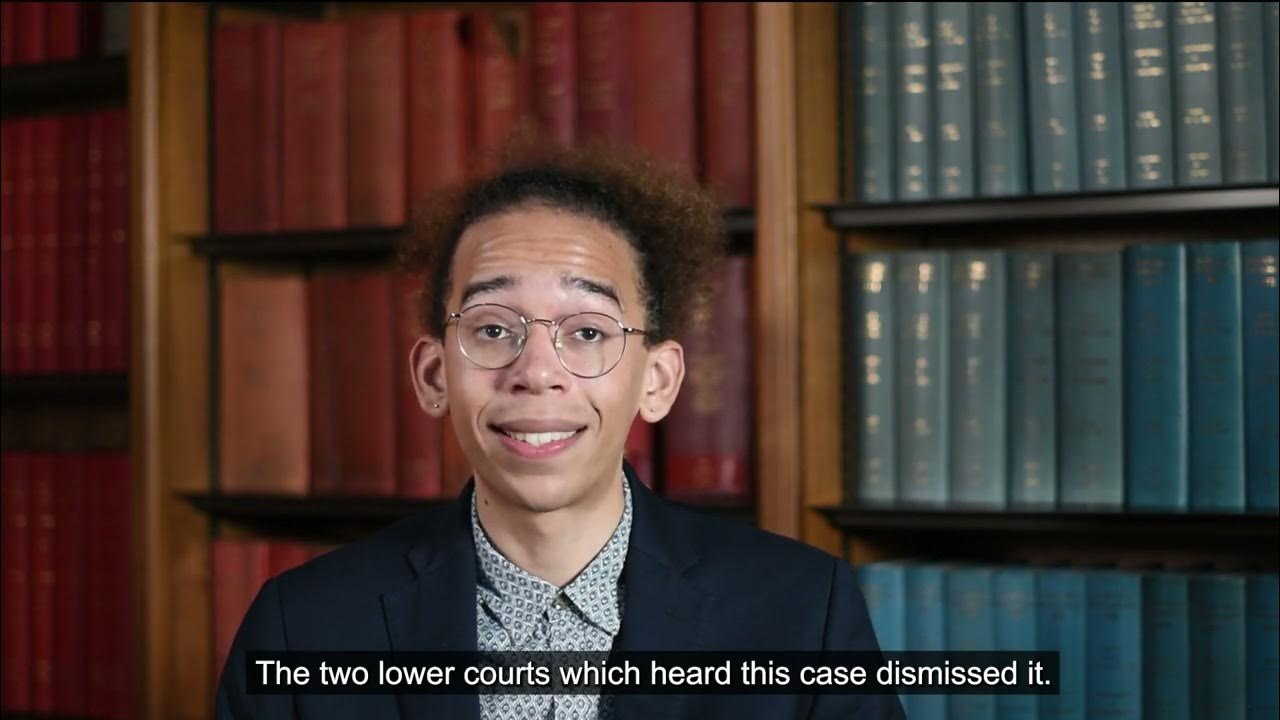Beverley McLachlin reflects on Supreme Court career, dispute with PM Harper
Summary
TLDRBeverly McLaughlin, Canada's first female Chief Justice, reflects on her impactful 28-year tenure on the Supreme Court, highlighting her role in landmark decisions on sex worker rights, assisted dying, and Indigenous issues. She emphasizes the importance of access to justice for all Canadians and the need for diversity on the bench. McLaughlin discusses her commitment to collegiality and consensus within the court while addressing challenges, including misconceptions about judicial activism. As she approaches retirement, she expresses pride in the court's achievements, particularly in advancing Indigenous rights and the Charter of Rights and Freedoms.
Takeaways
- 👩⚖️ Beverly McLaughlin served 28 years on the Supreme Court of Canada, including 17 years as Chief Justice, making history as the first woman in that role.
- ⚖️ McLaughlin emphasized the importance of a justice system that serves all Canadians, not just the wealthy or corporations.
- 🗣️ She highlighted her commitment to improving access to the courts, responding to public concerns about its inaccessibility.
- 🌍 McLaughlin advocated for inclusiveness in the judiciary, suggesting that diverse representation reflects the Canadian populace and builds trust in the justice system.
- 📜 In discussing historical injustices against Indigenous peoples, McLaughlin labeled it as cultural genocide, emphasizing the need for reconciliation.
- 📚 Judicial education is vital to address the issue of judges misapplying sexual assault law, with McLaughlin advocating for increased sensitivity and awareness among judges.
- 📰 McLaughlin faced a public dispute with former Prime Minister Stephen Harper but maintained her stance on the integrity of the judiciary.
- ⚖️ She rejected the notion of judicial activism, arguing that judges must uphold the Constitution and assess laws objectively.
- 🕊️ McLaughlin was an early proponent of assisted dying, indicating a shift in societal attitudes and legal frameworks over time.
- 🏆 She expressed pride in the Supreme Court's work on Indigenous rights and the Charter of Rights and Freedoms, recognizing its global significance.
Q & A
What notable position did Beverly McLaughlin hold in the Supreme Court of Canada?
-Beverly McLaughlin served on the Supreme Court of Canada for 28 years and was the Chief Justice for 17 of those years, making her the first woman to hold that position.
What was one of McLaughlin's significant contributions to the issue of access to justice?
-McLaughlin emphasized the importance of making the justice system accessible to all Canadians, particularly those who are ordinary citizens rather than the wealthy or corporations.
How did McLaughlin approach the issue of representation on the Supreme Court?
-She advocated for the inclusion of Indigenous judges on the Supreme Court, believing it was essential for Canadians to see themselves reflected in the judiciary.
What was McLaughlin's perspective on the term 'cultural genocide' in relation to Indigenous peoples?
-McLaughlin used the term 'cultural genocide' to describe historical laws and practices that suppressed Indigenous cultures and languages, emphasizing the need to understand this history in the context of justice.
What is McLaughlin's view on judicial education regarding sexual assault cases?
-She believes that ongoing judicial education is crucial to ensure judges are sensitized to the complexities and challenges faced by victims in sexual assault cases.
How did McLaughlin respond to the accusations made against her by former Prime Minister Stephen Harper?
-McLaughlin issued a press release outlining the facts and denying any wrongdoing, aiming to protect the integrity of the judiciary rather than engaging in a public dispute.
What was McLaughlin's stance on the criticism that the Supreme Court had become 'activist'?
-She argued that the judiciary's role changed with the adoption of the Charter in 1982, and that judges are required to ensure laws conform to the Constitution, rather than being politically motivated.
What did McLaughlin identify as her most significant achievements during her tenure?
-She expressed pride in advancing Indigenous rights and upholding the Charter, noting that the Court's work has gained international recognition.
Why was McLaughlin considered ahead of her time regarding assisted dying?
-McLaughlin had a dissenting opinion in the Rodriguez case in 1993, advocating for the right to assisted dying long before the law changed in Canada, reflecting evolving societal attitudes and evidence.
What emotions did McLaughlin express about leaving her position?
-McLaughlin mentioned she would miss the intellectual engagement and the opportunity to address challenging legal issues, highlighting her deep connection to her role as Chief Justice.
Outlines

Dieser Bereich ist nur für Premium-Benutzer verfügbar. Bitte führen Sie ein Upgrade durch, um auf diesen Abschnitt zuzugreifen.
Upgrade durchführenMindmap

Dieser Bereich ist nur für Premium-Benutzer verfügbar. Bitte führen Sie ein Upgrade durch, um auf diesen Abschnitt zuzugreifen.
Upgrade durchführenKeywords

Dieser Bereich ist nur für Premium-Benutzer verfügbar. Bitte führen Sie ein Upgrade durch, um auf diesen Abschnitt zuzugreifen.
Upgrade durchführenHighlights

Dieser Bereich ist nur für Premium-Benutzer verfügbar. Bitte führen Sie ein Upgrade durch, um auf diesen Abschnitt zuzugreifen.
Upgrade durchführenTranscripts

Dieser Bereich ist nur für Premium-Benutzer verfügbar. Bitte führen Sie ein Upgrade durch, um auf diesen Abschnitt zuzugreifen.
Upgrade durchführenWeitere ähnliche Videos ansehen
5.0 / 5 (0 votes)






